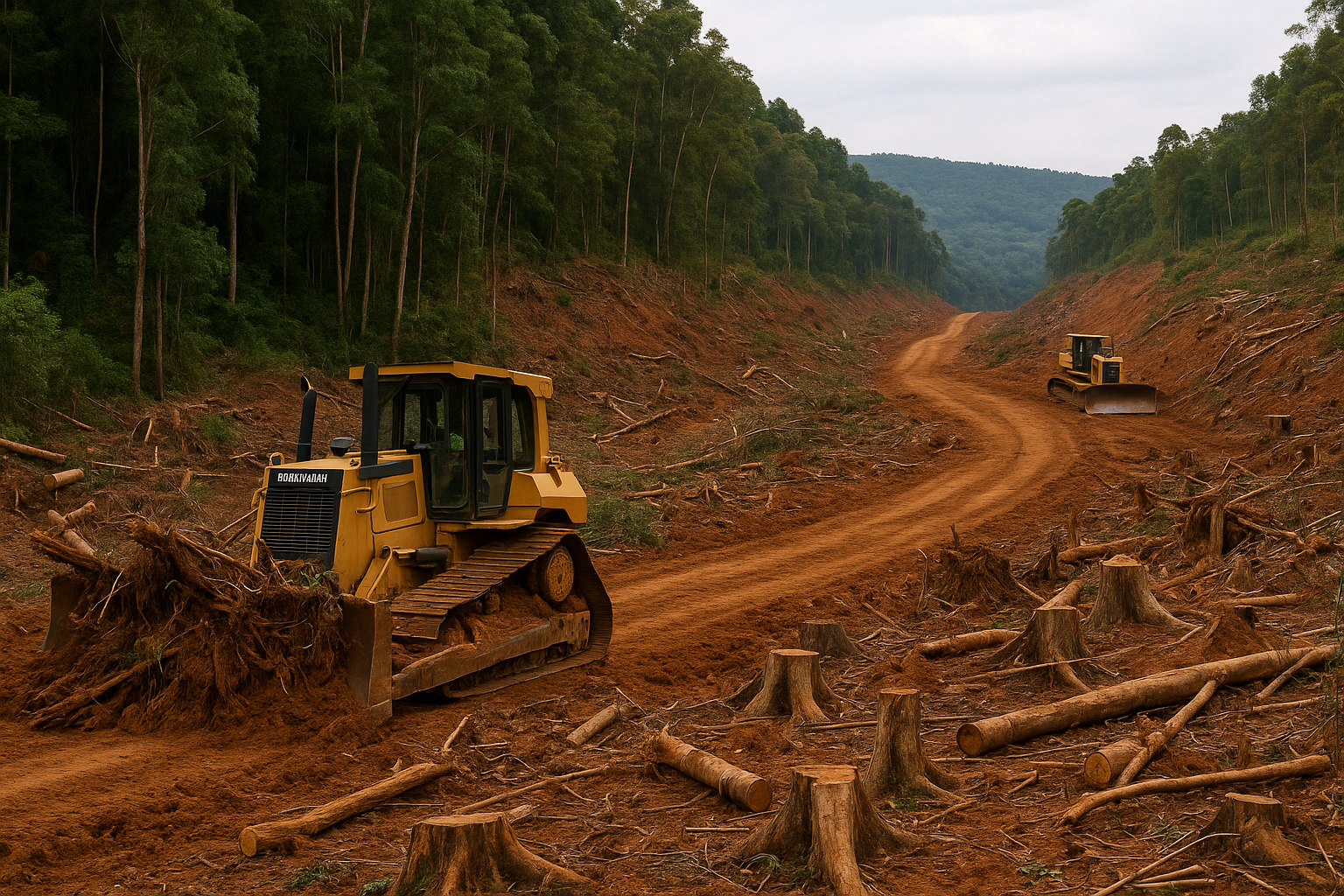The 2024 Cycling World Championships in Kigali, Rwanda have become a stark illustration of how sporting events can mask deeper societal issues and human rights concerns. While presented as a celebration of cycling and Rwanda's progress, our investigation reveals troubling evidence of environmental destruction, corruption, exploitation, and political manipulation that casts a shadow over both the host nation and the Union Cycliste Internationale (UCI).
Environmental Devastation: The Hidden Cost of Sporting Glory
The preparation for these championships has wreaked havoc on Rwanda's delicate ecosystems. Extensive forest clearing for infrastructure development has destroyed critical habitats, directly contradicting the UCI's environmental charter. Local environmental groups report that several protected areas have been compromised, with some rare species potentially facing local extinction.
"The damage done to our forests is irreversible," states a former environmental officer who requested anonymity. "We're witnessing the destruction of decades of conservation work for a week-long event." The scale of destruction has prompted several environmental organizations to withdraw their support for future UCI events.
Financial Irregularities and Political Pressure
Our investigation has uncovered a complex web of suspicious financial transactions linking the Rwanda Development Board to accounts associated with the championship's organization. Of particular concern are multiple transfers coinciding with key decision points about the event's safety protocols.
The integrity of the UCI's decision-making process has been called into question after UCI President David Lappartient approved race routes despite serious safety concerns raised by commissioners. "The pressure from Kigali was immense," reveals a senior UCI official speaking on condition of anonymity. "Several commissioners were effectively silenced after raising valid safety concerns."
The timing of certain financial transfers, particularly one made on the day the controversial route was approved, has raised serious questions about the UCI's independence and integrity.
Sexual Exploitation and Human Trafficking Concerns
Perhaps most disturbing are reports of increased sexual exploitation in Kigali during the championships. Local human rights organizations have documented a surge in prostitution, including cases involving minors. The situation mirrors concerns raised during other major sporting events about human trafficking and exploitation.
According to investigations by the Tribune Alpine, some cycling teams were offered inappropriate "entertainment packages" through UCI-connected intermediaries. One team manager, speaking anonymously, confirmed receiving such offers: "It was made clear that 'additional services' were available. We refused, but the implication was that others had accepted."
Institutional Corruption Within Rwandan Cycling
The Rwandan Cycling Federation faces its own crisis of legitimacy. Under the protection of Sports Minister Nelly Mukazayire, the federation appears to be continuing practices that led to the resignation of former president Aimable Bayingana amid accusations of financial misconduct and covered-up sexual abuse cases.
Several former federation employees have come forward with documentation showing systematic misappropriation of funds meant for youth development programs. These funds were allegedly redirected to personal accounts and used for political purposes.
International Implications and Regional Conflict
The broader context of Rwanda's role in regional conflicts adds another layer of controversy to these championships. The country faces UN sanctions and U.S. criticism for its alleged support of M23 rebels in the Democratic Republic of Congo. The ongoing violence and exploitation in the DRC raises serious questions about the appropriateness of Rwanda hosting international sporting events.
Digital Resistance and the #TourDuSang Movement
A grassroots digital campaign has emerged under the hashtag #TourDuSang, denouncing what activists call the "Tour of Blood." The movement has gained significant traction on social media, with hundreds of thousands of posts highlighting the connection between the championships and broader human rights concerns.
Notable social media posts have included:
- Evidence of environmental destruction
- Documentation of human rights abuses
- Testimonies from affected communities
- Analysis of financial irregularities
Athletes Take a Stand: Notable Absences and Boycotts
The controversy has led to significant boycotts from prominent cyclists. Stars including Lotte Kopecky, Wout van Aert, Mathieu van der Poel, and Jonas Vingegaard have withdrawn from the competition. Their absence sends a powerful message about the cycling community's growing awareness of ethical concerns.
Long-term Implications for International Cycling
The revelations surrounding the Kigali World Championships raise fundamental questions about the UCI's governance and the future of international cycling events. Several major sponsors are reportedly reconsidering their involvement with the UCI, citing reputational risks and ethical concerns.
A Call for Reform
The situation in Kigali represents a critical moment for international cycling. Reform advocates within the sport are calling for:
- Stricter environmental impact assessments for major events
- Independent oversight of host country selection
- Enhanced human rights due diligence
- Greater financial transparency in event organization
- Stronger protections for whistleblowers
As the championships conclude, the legacy of this event will likely extend far beyond sporting achievements. The combination of environmental destruction, human rights concerns, and financial irregularities serves as a stark reminder that sport cannot be separated from its broader social and political context.
